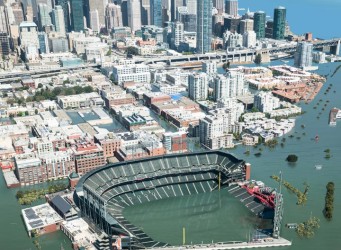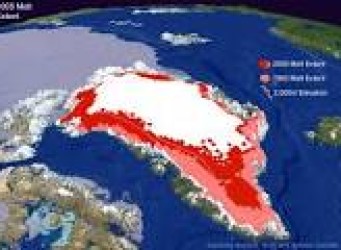One of the reasons that I write this blog is to provide information on the consequences of climate change early on that you may miss in the main stream media. I try to keep it relevant to people so you can use it to make smart decisions under changing circumstances. This post is another pertaining to protecting the value of your assets. I know that some of you receiving this have homes or other real estate in coastal areas or in terrain that could be prone to forrest fires. It’s time to rethink your holding on to these.
The reason is not simply to protect the investment but also a reminder of how unsafe it could be if you are caught in a hurricane or wild fire. Insurance companies sure get it. They are raising premiums on property in high risk areas. And the real estate market is also catching on and catching up. While insurance premiums go up, values are going down. As I write also about selling off fossil fuel stocks before they lose their value, so too you should be thinking about your real estate and sell before it’s too late.
““Homes in areas most exposed to flood and hurricane risk were worth less last year, on average, than a decade earlier,” according to analysis released Monday by Bloomberg News. Also, the price of homes at lowest risk for wildfires “far outpaced those with the greatest risk.””
“Their analysis of home prices versus flood risk reveals that from 2007 to 2017, homes at “high” or “very high” risk of extreme flooding saw a 4.8 to 5.6 percent drop in price, while homes at the lowest risk saw an 8.4 to 9.6 percent rise.”
““Some residents will cash out early and suffer minimal losses. Others will not be so lucky.””
We Just Got a Clear Sign the Trillion-dollar Coastal Property Bubble Could Burst any Time
Climate change hits U.S. property values, new analysis finds
Home buyers are starting to incorporate climate risk into the price of property in areas facing warming-driven extreme weather disasters, new research finds. And that’s bad news for the trillion-dollar coastal property bubble.
“Homes in areas most exposed to flood and hurricane risk were worth less last year, on average, than a decade earlier,” according to analysis released Monday by Bloomberg News. Also, the price of homes at lowest risk for wildfires “far outpaced those with the greatest risk.”
Their analysis of home prices versus flood risk reveals that from 2007 to 2017, homes at “high” or “very high” risk of extreme flooding saw a 4.8 to 5.6 percent drop in price, while homes at the lowest risk saw an 8.4 to 9.6 percent rise.
This new property analysis comes just days after a special new issue of the journal Nature. It presented the latest findings on the dangers posed to our coastal cities from the Antarctic ice sheet’s accelerating disintegration.
In particular, leading scientists warned that if we don’t reverse President Trump’s climate policies and embrace the Paris Climate Accord quickly, we face worst-case sea level rise that will inundate our coastal cities within decades.
Together, these new findings suggest the huge bubble in coastal property values is getting closer to bursting as global warming-driven sea level rise and storm surges threaten more and more property with flooding.
The chief economist for mortgage giant Freddie Mac warned in 2016 that the coastal property bubble will burst faster than people expect: “Some residents will cash out early and suffer minimal losses. Others will not be so lucky.”
At the same time, the storm surge from future super-hurricanes will be on top of whatever sea level rise we see. So research finds with our current do-little climate policies, Hurricane Sandy-type storm surges could occur every year or two by mid-century.
“The risk will rise as sea levels rise, and when that happens, you’d expect your property value to fall,” as a leading risk management expert explained last October. “At some point, the property becomes worthless.”
The key point is that climate risks are growing rapidly, which means the value of homes most in danger of all kinds of extreme weather will inevitably see a reckoning.



